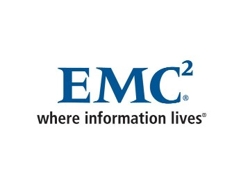 The current hot topic in the storage industry these days is EMC’s acquisition of XtremIO, owing to the fact that XtremIO is currently developing a next-generation storage array that aims to use 100 percent pure solit-state flash memory. EMC is certainly capable of benefiting from XtremIO’s technologies, since they are currently the market leader in the disk-based storage global market, which is a $30 billion industry these days.
The current hot topic in the storage industry these days is EMC’s acquisition of XtremIO, owing to the fact that XtremIO is currently developing a next-generation storage array that aims to use 100 percent pure solit-state flash memory. EMC is certainly capable of benefiting from XtremIO’s technologies, since they are currently the market leader in the disk-based storage global market, which is a $30 billion industry these days.
The news also foreshadows the future of flash-based storage medium, as EMC is largely dependent on disk-based products and is actually competing against solid-state flash storage devices. It can be taken as EMC’s admission that flash storage is where the industry will gravitate towards in the future, and signs of it can already be seen right now, as smartphones, tablets, and ultraportables are now eschewing traditional magnetic-disc based hard disks for the lighter, significantly faster, yet more expensive Solid State Drives.
This is a case of Moore’s Law happening: mechanical storage media is starting to become obsolete since CPUs get denser, cheaper, and faster, while mechanical disks get cheaper, denser, and slower, as it tries to pack more data in a disk with a flat performance ratio. It’s basically akin to adding 100 more floors to a building without adding additional doors. From the CPU’s perspective, hard drive these days are as slow as the magnetic tape did 2 decades ago. According to Turing Award Winner Jim Gray, disk is the new tape, and flash is the new disk.
Gartner predicts that an all-flash storage market will be worth $4 billion by 2015, which is probably one of the key reasons why EMC wants to penetrate said market. What’s interesting is that EMC has already shipped an amount of enterprise flash within their disk-centric arrays that will dwarf any other vendor’s. Its acquisition of a competitive flash-based architecture may be a sign of an impending change in the industry, indicating EMC’s foresight. There are two main takeaways from EMC’s XtremIO acquisition:
Storage architectures that were meant for mechanical disks are not suited to all-flash
This certainly mirrors a lot of what industry experts say, that in order to take advantage of the benefits of flash, a comprehensive redesign of the array hardware and software is needed. EMC has been selling mechanical disks that use flash memory as caches and performance accelerators for years, but their XtremeIO purchase signifies that they’d have to start from scratch if they want to maximize the capabilities of flash.
Deduplication Technology is Important For All-Flash
One of the problems XtremIO was trying to solve is the issue with flash memory having write speeds that are relatively slower than its read speeds. This means there’s very little sense in trying to write the same data repeatedly to flash in order to optimize its performance.
Currently, mechanical hard disks are trying to improve performance by incorporating flash memory that will serve as a disk cache. The all-flash technology, on the other hand, doesn’t need this (since it’s made entirely out of flash). The big improvements with all flash technology is deduplication and compression, which aims to reduce the cost of disk inline with the cost of tape. It’s exactly the same trend that EMC is reinforcing with their purchase of XtremIO.
Experts believe that history is going to repeat itself in the storage market, in the sense that accelerating the transition from slow, cheap storage media (tape in the past, disk now) to faster and more expensive ones (disk in the past, flash now), you need to take cost out of the equation. With the way technology is going right now, users can purchase 100% flash based storage at the same or below the cost of the fastest mechanical disks. Now that flash is in a similar price range, with 10 times more speed, takes up less physical space, and consumes less electricity, there is no more reason to buy a mechanical disk.
The next few years will see a massive shakeup in the storage industry, but the big winners will be the customers, as they are the ones who stand to benefit in the move from mechanical disk to all-flash.
who gives 2 month old news n changes the name of company frm extremio to extrem10